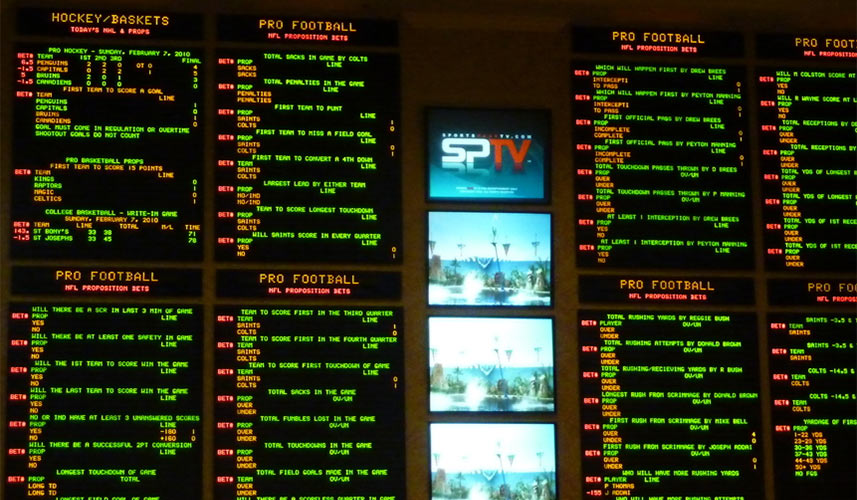Importance of Keeping Emotions in Check When Betting Sports

The most important thing a beginner sports bettor should know is to how to keep their emotions in check. Gambling is an investment and not just a financial one either. It’s an emotional one as well. A popular talking point when discussing what’s important is usually bankroll management. We can agree that this is a very important concept to understand in order to be successful, but there is a piece missing that must be learned before one can truly achieve bankroll management and that’s managing your emotions. It is easily the largest distinction between amateur and professional sports bettors.
Sports betting can be an emotional roller coaster, both during a game and throughout an entire season. There are going to be highs and there are going to be lows. You will win six in a row and then it will seem as if you will never win again. During these peaks and valleys, the emotions of a beginner sports bettor will often match the swings of their bankroll. You will feel unstoppable during a winning streak and will panic during a losing streak. In both instances, it’s common for beginners to stray from their bankroll rules and bet more than they should. It may seem rational at the time and you will undoubtedly find reasons to increase your bets, but this is the opposite of what you should do in order to be successful.
During a winning streak, your confidence will make you feel great. Naturally, you’ll want to capitalize on this winning streak by raising your wagers. It’s normal to regularly adjust your unit size as your bankroll changes, but there’s a good chance you’ll get caught matching your bet size with your inflated confidence. However, no one stays hot forever and losses are around the corner and laying large wagers means losing large amounts. This only leads to one thing.
When sports gamblers are on losing streaks they’ll bet more than usual in order to win back money lost. This is known as chasing losses or just chasing, and it’s a bad situation to be in. Chasing usually results in more losses, which can then lead to more chasing, and so on and so on. This creates a vicious cycle that can be difficult to break. This can affect even the most experienced sports bettor and it is all due to not being able to check their emotions. When you win or are winning, successful gamblers know how to handle it. Science even says so.
A study titled ‘Knowing When to Stop: The Brain Mechanisms of Chasing Losses’ in 2008 found that chasing was associated with increased brain activity in areas linked to incentive-motivation and an expectation of reward. By contrast, quitting was associated with decreased activity in these areas but increased activity in areas linked to anxiety and conflict monitoring. To put it plainly, participants that chased primarily focused on the positive outcome and, conversely, the negative outcome when deciding to quit. The study concluded that “excessive loss-chasing behavior in gambling might involve a failure to appropriately balance activity within neural systems coding conflicting motivational states.” So, a gambler’s inability to properly manage their emotions and evaluate both sides of the decision to gamble played a large factor. An experienced bettor knows this from experience, but it is interesting to see this confirmed in a study such as this.
When chasing happens or becomes an option, you probably won’t realize it at first. The emotions created from losing can impair your judgement. This feeling grows as the losing continues and your once logical set of rules governing your bankroll management is replaced by reacting with your emotions. There’s no way to completely remove this feeling. However, you can plan ahead to control it and reduce your chances of responding in a negative way. First, you should already have a basic plan in place. Here are the basics you need to know:
Your bankroll size
Your unit size
Sports you will bet
How you will choose bets
With these details set, you can add the following rules for the inevitable losing streak and how to handle potential chasing:
Never increase your unit size because of recent losses
Do not make a bet you did not plan on making earlier
Develop a cooling period after each bet – win or lose (take a walk, read, workout, meditate, etc.)
Never bet while intoxicated
Treat each bet individually, independent of previous bet
Never live bet without a plan
Simple rules like this can be a lifesaver for a serious gambler. Following your rules will take discipline but it is important to keep your emotions in check and not fall into chasing your losses. Rules such as these can help you do just that. If you want to gamble on sports for fun, just throw a few bucks down on a few games here and there, that’s one thing. However, if you want to make serious money and become a serious sports gambler, you are going to have to have that discipline to play within yourself and never get too emotional.




